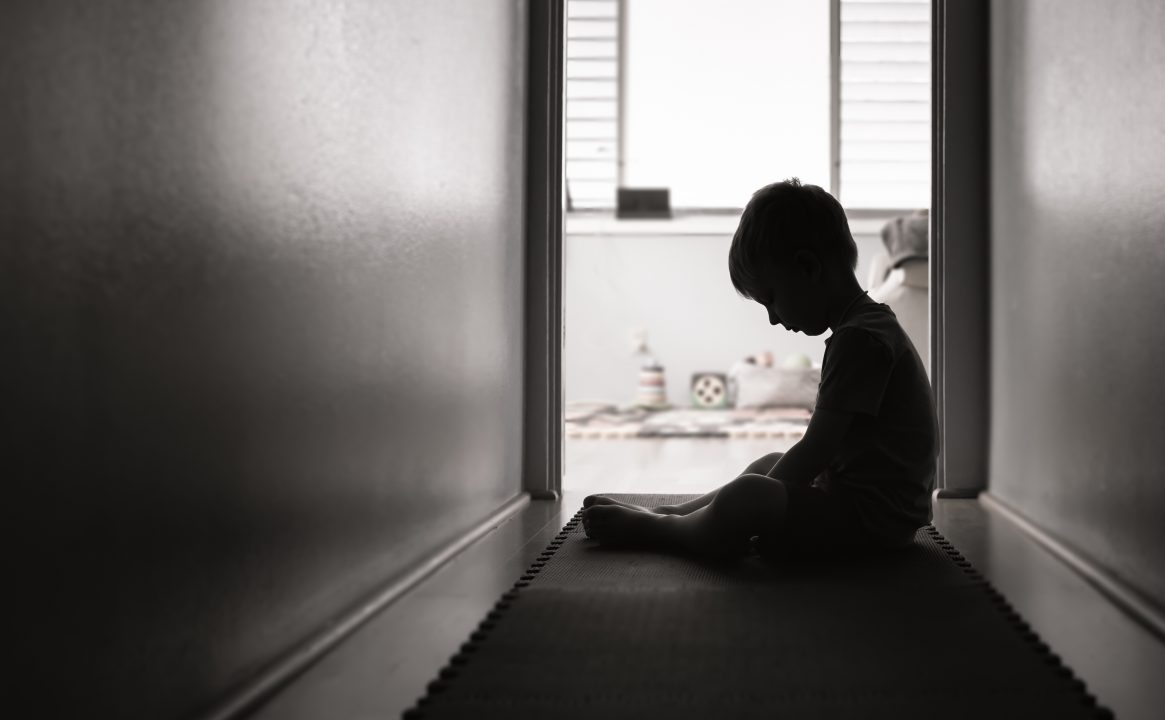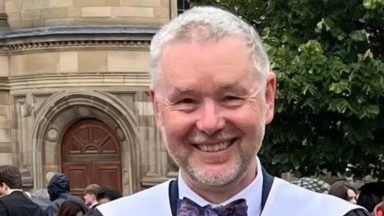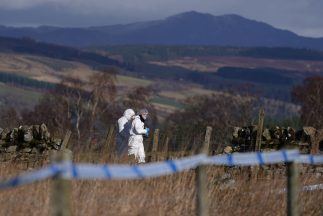A quarter of children referred for specialist help with mental health problems have either attempted or thought about suicide, new research has found.
Researchers from the University of Stirling examined referrals made to Child and Adolescent Mental Health Services (CAMHS) in two separate health board areas over a six-month period.
Of those they discovered 25% were made for youngsters who were either thinking about or had attempted suicide – with a third of this group under the age of 12.
The research, backed with funding from the Economic and Social Research Council further, found in one area more than two-thirds of youngsters (69%) were not offered a face-to-face assessment – with just 8% offered treatment immediately.
However, it found the other health board, which has a specific team dedicated to dealing with those struggling with suicide and self-harm, offered face-to-face appointments to 82%, with two-thirds (66%) offered some form of treatment.
Dr Lynne Gilmour, who led the research along with colleagues from Stirling University’s Nursing, Midwifery and Allied Health Professions Research Unit (NMAHP-RU), said it shows there is an “often-missed yet vital opportunity for early intervention with very young, suicidal children”.
She said: “In the UK, children who have attempted suicide or have suicidal ideation are referred to Child and Adolescent Mental Health Services for assessment and treatment – however, little is known about the numbers referred for suicidality or the care they receive.
“This is of particular concern given CAMHS are under phenomenal pressure. Staff are doing their utmost to provide timely and appropriate support; however, as our study shows, systems in place are not sufficient for the overall numbers being referred, some services are overwhelmed – and this has been further exacerbated by the pandemic.
“Our research sought to understand how the children referred for suicidality are processed, assessed and treated.
“Overall, we found that one in four referrals to CAMHS involved children who had either attempted suicide or had suicidal ideation – and 33% of those were under 12.
“We also identified a variation within, and between, health boards in terms of assessment, referral outcomes, and care pathways for these children – with most, in one area, not receiving a face-to-face assessment, let alone treatment or support.
“This highlights the often-missed yet vital opportunity for early intervention with very young suicidal children.”
Dr Gilmour, who has presented the findings to the Scottish Government, added: “Our study highlights vast differences in how referrals for suicidality in children are processed and responded to.
“We found little difference in the issues being identified by referrers, the age range of children, and the behaviours they present, yet there were very different outcomes and pathways of care.”
She continued: “The data presented here is novel and will provide a vital source of information for decision-makers and service providers in their consideration of service structures and allocation of resources.
“This is particularly important given the growing number of referrals to CAMHS and the excessively long waiting times in many areas. It is vital that those identified as being at risk of suicide be provided with clear and consistent pathways of care at the earliest possible opportunity.”
Public Health Scotland data showed that in the first three months of 2022 a total of 9,672 children and young people were referred to CAMHS.
Over the period January to March, 73.2% of those who were seen by CAMHS were seen within the 18-week target time.
Scottish Conservative MSP Sue Webber, the party’s spokeswoman on mental wellbeing, said: “It is shocking that young people across Scotland are facing a postcode lottery when it comes to accessing mental health services.
“The SNP’s record on ensuring young people can access vital mental health services as quickly as possible is one of miserable failure.
“That has been laid bare in this damning report which shows that one quarter of those young people referred to mental health services are suicidal, which is a tragic finding.”
Scottish Liberal Democrat leader Alex Cole-Hamilton meanwhile said it is “devastating that children who are suicidal might never be offered an appointment under CAMHS”.
“Successive health secretaries have spent years trying to spin a positive tale even as waits for young people get longer and longer,” he said. “They should take a long, hard look at themselves.
“My party have been long-standing advocates for improving the provision of Scotland’s mental health. This means having counsellors and mental health first aiders available at every stage of education, lowering referral bars and introducing earlier support, as well as establishing a single point of contact for CAMHS waiting lists.”
A Scottish Government spokesman said: “An additional £40m was allocated to NHS Boards to improve CAMHS, from our £120m Mental Health Recovery and Renewal Fund.
“This funding has gone towards improving CAMHS provision and includes reducing the backlogs of CAMHS waiting lists, establishing access to CAMHS assessments out of hours, and improving data collection and access to specialist regional services.
“The new Suicide Prevention Strategy and Action Plan will be published this month, detailing how we are currently supporting children and young people, and will identify further action to reduce suicide in children and young people.”
Follow STV News on WhatsApp
Scan the QR code on your mobile device for all the latest news from around the country


 iStock
iStock























